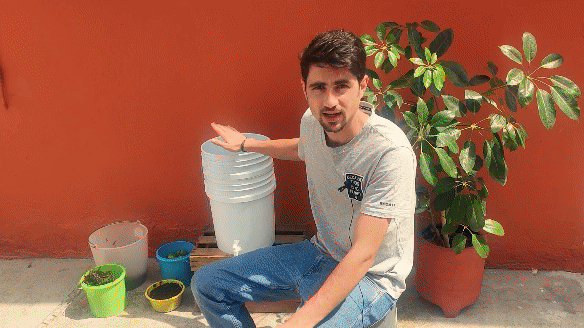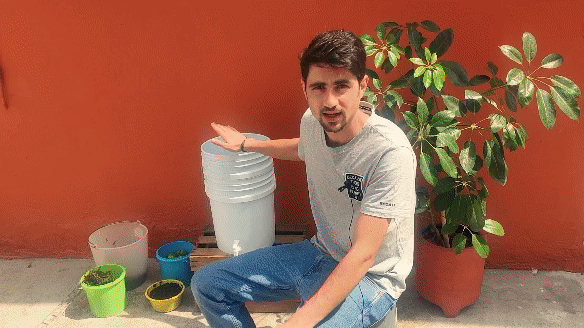
Vermicomposting

About this good practice
The good practice is focuses on urban gardens, occupational centers, nursing homes, special education centers, associations, schools and/or
gardens that self-manage vegetal waste and manure.
The vermicomposting is an interesting tool where the volume of biowaste is low and therefore we cannot sanitize the compost through the thermophilic phase.
Worms help maintain a balanced and healthy environment in the compost, which contributes to sanitation because it reduces the presence and activity of pathogens. This occurs thanks to proliferation of beneficial microorganisms, regulation of pH and aeration of the compost.
The worm castings produced is used as a top organic fertilizer also worm breeding for start the process.
There are two cases where worms can be used to do composting:
- DOMESTIC: Focus on people/families who live in apartments with terraces or patios. Also, like a didactic tool to do environmental education in schools.
- COMMUNITY: When the biowaste is from vegetal composition (leaves, fruit & vegetables peels and even manure).
Expert opinion
Resources needed
The investment in materials, worms, tools and video edition is 900 €.
Actors involved: urban gardens, occupational centers, special education centers, associations and schools.
The monitoring and coordination of the project will be carried out by RSU staff.
Evidence of success
A refuge of donkeys transform manure in worm castings.
An urban garden harvest worm castings from biowaste and multiplicate x 100 population of worms.
An institute is doing vermicomposting with leaves and lunch scraps linked to the biology subject.
Potential for learning or transfer
There are several learning potentials:
In the case of school vermicomposting, it will be carried out in schools and institutes where the care of worms will be a didactic tool to learn about the recycling work of organic matter cycle. Later, humus produced will be use in the school garden.
The worm as mesofauna of compost bin helps to make visible the process of transformation of organic matter. Also stimulates engagement through the feeling of responsibility for caring for them. Increase the environmental engagement and improve composter monitoring through the relationship established with the worms. There is a feeling of responsibility and care for pets.
Achieve sanitize the compost using worms in those places where it is not possible to reach the thermophilic phase because of the low contribution of biowaste or wide frequency of contributions.
Further information
Good practice owner
You can contact the good practice owner below for more detailed information.


